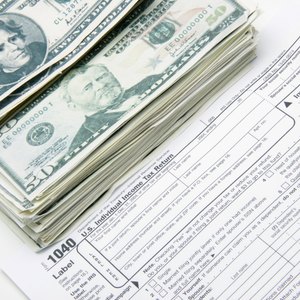
The government's Investor website describes the 401(k) as a tax-advantaged account that falls under the category of employer-sponsored plans. Some can be funded by pre-tax dollars, while others are funded by after-tax dollars. Due to the IRS code that is responsible for their creation, these 401(k) plans set out conditions that you must fulfill when moving money in and out of the designated accounts.
So, can you take out money out of a 401(k)? Yes, you can.
The general rule is that you can reinvest your money back into your plan after cashing out a 401(k) account, but only for a limited period of time. If you don't act within that window of opportunity, the Internal Revenue Service usually won't make an exception to allow you to contribute the money back into your 401(k).
The 60-Day Deadline
According to the IRS, no matter what you've done with the money while it was in your custody, you can put it back in your 401(k) – or any other qualified retirement plan – if it gets redeposited within 60 days from the date you took the money out. Otherwise, the money you take when cashing out a 401(k) will attract taxation. This is known as the 60-day rollover rule.
For example, if you took out $2,000 to pay off your high-interest credit card bill, but two weeks later received an end-of-year bonus and a big check from your grandparents for Christmas, you could use that money to reinvest in the 401(k).
IRS Waivers for the 60-Day Rollover Rule
In very limited circumstances, the IRS says you're entitled to an automatic waiver of the 60-day time limit. To qualify, you're basically required to have done everything correctly and have a bank error be the only problem. Also, if you had extreme circumstances such as being hospitalized, incarcerated or disabled, the IRS may grant a waiver allowing you to complete the rollover late.
In considering a waiver, the IRS also looks at whether you used the money for other purposes, whether bank errors contributed to the late rollover, and how much time has passed since the initial distribution. So, it’s important to observe the IRS rules concerning the rollover of funds from a 401(k) to avoid taxation since the waiver is difficult to get.
Tax Withholding Traps
When you take a 401(k) distribution for any reason, the IRS notes that 20 percent gets withheld for federal income taxes so you don't receive the full amount. And that happens even if you intend to reinvest in the 401(k) later.
Therefore, if you want to reinvest the full distribution back into the 401(k), you must come up with the extra 20 percent as well. Otherwise, whatever you don't reinvest counts as a permanent distribution.
For example, supposed you take out $2,000. You receive a check for only $1,600 because $400 is withheld. If you redeposit only $1,600, that last $400 counts as a permanent distribution.
Tax Implications for Cashing Out a 401(k)
Completing a rollover of your 401(k) distribution helps you avoid the nasty tax consequences of an early 401(k) withdrawal. Early withdrawals count as taxable income and, unless a special exception applies, such as having medical bills that are over 10 percent of your adjusted gross income or a permanent disability, you also owe an additional 10 percent tax penalty beyond the income taxes due.
However, when you roll over the money, you report the distribution on your return, but any portion (or all of it) that you roll over isn't counted as taxable income or hit with the penalty.
References
Writer Bio
Based in the Kansas City area, Mike specializes in personal finance and business topics. He has been writing since 2009 and has been published by "Quicken," "TurboTax," and "The Motley Fool."

